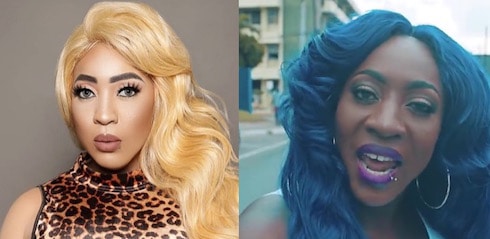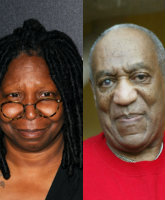Raven-Symone on why she doesn’t want to be called African-American
Raven-Symone made headlines last fall when she said on Oprah’s Where Are They Now? that she is “not an African-American.”
“I’m tired of being labelled,” Raven said when asked specifically about her sexuality. “I’m an American. I’m not an African-American.”
“Oh girl, don’t set Twitter on fire,” Oprah responded. “What did you just say? Stop! Stop! Stop the tape right now.”
Raven explained she doesn’t know “where my roots go to” and doesn’t know what country in Africa her ancestors came from, but does know about her American heritage.
As Oprah predicted, there was a lot of backlash when the interview aired. So, in a new interview with People, the recently named View panelist tried to explain her position again:
“I don’t like labels, but everyone needs them to understand what is going on. So, okay, I get it. Give me ‘American.’ There is nothing wrong with being an American, purely… I think that there are a lot of different races that fall under ‘American,’ so past that you really just are sub-categorizing me over and over again. I’m not disowning my history in any way. My family has been here for almost 400 years. We’re American.
Raven said she understands and supports people with African heritage who identify as African-American.
“This is me and what I feel about myself. But if you identify as African-American, then you’re African-American,” she said. “What right do I have to tell you what you are and what you’re not?”
As with the first time around, the reactions to Raven’s argument seem to be mixed.
“I completely agree with Raven Symone. It’s not ‘African-American,’ it’s American! You don’t call white people ‘European-American,'” one said on Twitter.
“If we ever got to the place where people were just people, minus all the ethnic labels, then maybe we would be rid of all the hindrances that accompany them,” another commented. “She’s got guts, which is rare in Hollywood.”
However, some said Raven choosing the wrong battle.
“The whole point of African-American was to connect to some cultural heritage, and to not be defined by skin color as black etc,” one said. “It’s fine to relook at these terms, but have some respect for the thinking that went into them.”







